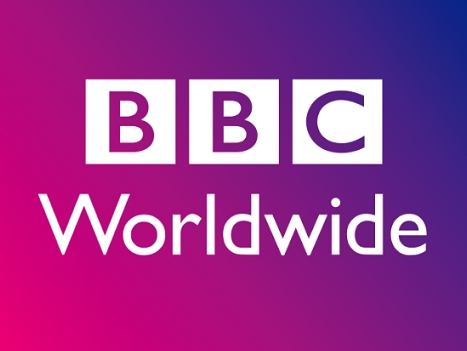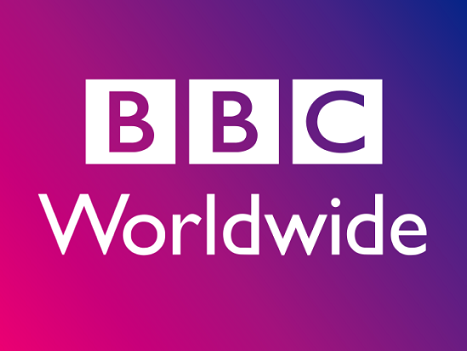
 BBC Advertising reveals the truth about ‘millennials’ and why brands need to rethink their approach to this much-coveted generation
BBC Advertising reveals the truth about ‘millennials’ and why brands need to rethink their approach to this much-coveted generation
· Research reveals that the industry’s perception of millennials doesn’t match the reality – it’s the affluent subset -22million in India, which embody the traits that are often associated with this generation as a whole
· Affluent millennials’ unique relationship with money and the environment is having a major impact on their relationship with brands and their expectations of them
· Affluent millennials have a much stronger relationship with international news providers than they do with social media and 89% of India Affluent millennials rank trust as an important factor when consuming news.
BBC Advertising published an in-depth, global report into ‘millennials’, focused on dispelling the misconceptions surrounding this highly sought after generation and making it easier for advertisers to target the most attractive and commercially receptive segment within that group. The report titled Reaching Affluent Millennials will offer advertisers a deeper insight into the difference between ‘affluent’ and ‘non-affluent’ millennials and identifies the most valuable segment, ‘The Supercharged’.
Millennials have long been considered the most influential generation by marketers, the arbiters of all things innovative, cool and current. However, the research shows that the vast majority (79%) of the 106million millennials in India are not so dissimilar in their beliefs to older generations. It is only the affluent millennial subset, 22million Indians (21%), who represent the unique characteristics often applied to millennials as a whole. Globally 84% of millennials have similar characteristics to older generations, with 16% being the affluent millennial subset.
The study found that affluent millennials have a unique relationship with money. In India 77% affluent millennials are likely to consider themselves much more affluent than average and 65% agree that money is the best measure of success which is 27% more than the global audience. Plus 74% of the India affluent millennials also feel that they are very proactive about investing money, 14% higher than global audience.
They are also extremely passionate about the environment. In India 86% agree that they do everything they can to help the environment whereas globally 78% of the affluent millennials feel the same.. They are also more likely than non-affluent millennials to follow this through into purchase behaviour – 82% would pay more for sustainable products vs. 68% of non-affluent millennials. As a result, affluent millennials have higher expectations of brands, with 88% preferring brands that give something back to society vs. 69% of non-affluent millennials. When it comes to the environment and corporate responsibility, this high capital group expect brands to behave in the same way they do. In order to resonate with this audience, brands have to be authentic and translate words into action.
The research also uncovered that affluent millennials are much more emotionally attached to brands, with 70% globally agreeing that their favourite brands play an integral role in their life vs. only 51% of non-affluent millennials globally. They are also 36% more likely than their non-affluent counterparts to agree that they are defined by the brands they purchase.
In India, affluent millennials are more conscious with 73% saying they are brand conscious, compared to the global average of 67%. Plus 79% of the Indian affluent millennials feel that the brand plays an integral role in their life as compared to 69% non-affluent millennials. They are also 19% more likely than their non-affluent counterparts to agree that they feel a strong emotional connect with the brands purchased. In addition 82% Indian affluent millennials prefer brands to provide them with content (globally it is 73%) and 80% also prefer brands to tell them a story (globally it is 67%).
According to the research and contrary to common belief, affluent millennials also have a stronger relationship with international news providers than social media-based news outlets. For example, the BBC reaches 69% of affluent millennials on a monthly basis globally (compared with between 18-24% for online news ‘youth brands’).). The report goes on to conclude that this group look to international news providers to help them understand the world and to make important life decisions. They value trust above all else in a news provider, with 89% of India affluent millennials ranking this as an important factor when consuming news, globally 83% say it matters most. .
Other key global findings relating to news providers include:
· 77% consider it important for news providers to provide editorial curation
· 63% find international news providers useful for helping them to understand the world. (In India this is 69%).
· 48% look to news providers to help them make decisions on how to protect their family
· 41% look to news providers to inform them when making financial decisions
Alistair McEwan Senior Vice President, Commercial Development, BBC Advertising, Asia & ANZ , said: “In an increasingly competitive market where consumers have greater choice regarding the brands they wish to purchase and be associated with, it is imperative that advertisers truly understand who they are targeting and how to reach them. Today’s report delves beneath the initial labels assigned to different generations, offering advertisers the most accurate picture to date of millennials, from their behaviours to their beliefs.”
The research has also identified the most valuable segment within the affluent millennial group. The ‘Supercharged’ group have a stronger global outlook, are more influential in business, are early adopters and brand ambassadors. More importantly, they are the opinion leaders of their generation. The BBC tops the reach to this group, with 87% total monthly brand reach globally. The findings in this latest research will enable media agencies to identify and reach ‘The Supercharged’ to the benefit of advertisers. This group is now in the industry planning tool the Global Web Index, which will allow campaigns to be optimised against this segmentation. Advertisers will also be able to buy campaigns against this audience on BBC.com via BBC Advertising.
Additional global figures include:
· 73% of affluent millennials prefer brands to provide them with content vs. 59% non-affluent millennials
· 67% prefer it when a brand tells them a story vs. 57% non-affluent millennials
· 74% of affluent millennials agree that news stories from other parts of the world feel more relevant to them than they used to vs. 54% of non-affluent millennials
· 77% of affluent millennials are excited that their generation will be responsible for the future vs. 64% of non-affluent millennials. In India this is 86%.
Methodology
The study was carried out between August and September 2016 and comprised of over 3,000 interviews across 31 countries. The respondents were selected from a pool of millennials from industry wide planning tool the Global Web Index, and then modelled up to the entire affluent millennial base. The research also included interviews with affluent millennials across seven markets – Australia, Germany, USA, Canada, India, Singapore and South Africa – conducted by Voxpopme.